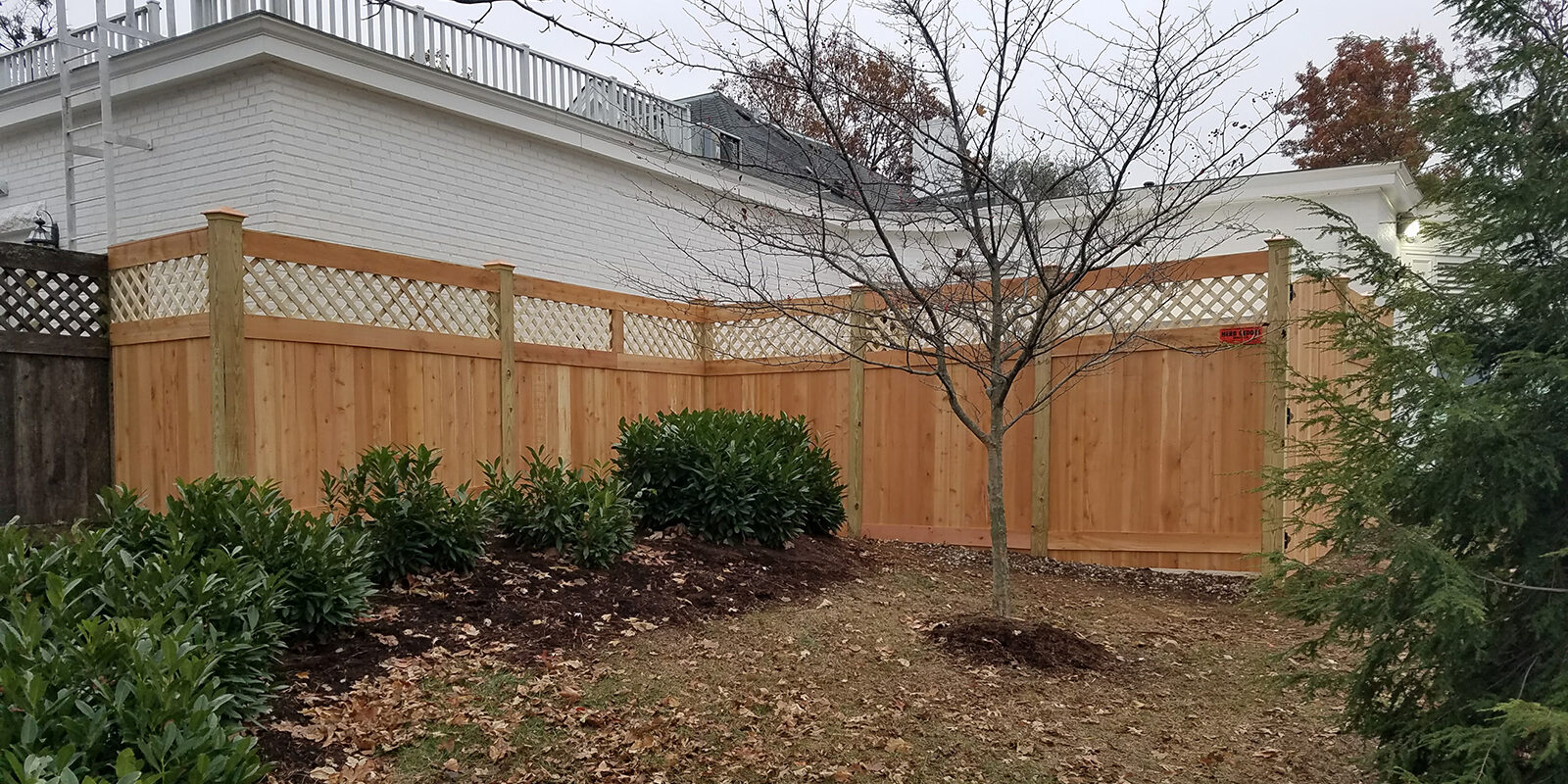When the cold weather rolls in, it’s important to winterize your home —including your fence. Cold temperatures impact every material type differently. An aluminum, vinyl, and wood fence all require different care. Preparing them for the cold weather will ensure they maintain their quality and hold strong through the winter season.
Your Guide to Fences and Winter Weather
Aluminum Fencing
Aluminum is highly weather resistant. However, the weight of snow and ice can still create issues. If a large amount sits long enough, it can gradually move posts off-kilter, especially during freeze and thaw cycles when the soil may become loose. It can also damage the connecting pieces that hold your fence frame together. Never let snow and ice linger on your aluminum fence and speak with a fence contractor about inspecting how well your posts are anchored.
Wood Fencing
A wood fence faces the most issues during winter. Wet conditions can lead to mold and mildew growth. When the wood isn’t dried, rot can develop, leading to extensive repairs. Make sure to waterproof your wood fence with a seal before snows come in, and remove moldy or rotting boards immediately if you notice them.
Vinyl Fencing
Vinyl is also extremely durable, though it can experience the similar shifting issues that can happen with aluminum. It may also sag or warp under the weight of snow and ice, leading to costly fence repairs. Always shovel snow away from your fence and repair any splits or cracks right away before they worsen or damage adjacent pieces of fencing.
If you need assistance maintaining your aluminum, vinyl, or wood fence, turn to Herb Geddes Fence. Located in Lexington, KY, they bring over 50 years of experience to each job and are proud to hold an A+ rating from the Better Business Bureau®. They can handle residential and commercial fence installation, and you can count on their fence contractors to have all the resources you need. Call (859) 885-2215 to speak with their staff and visit their website to learn more.







